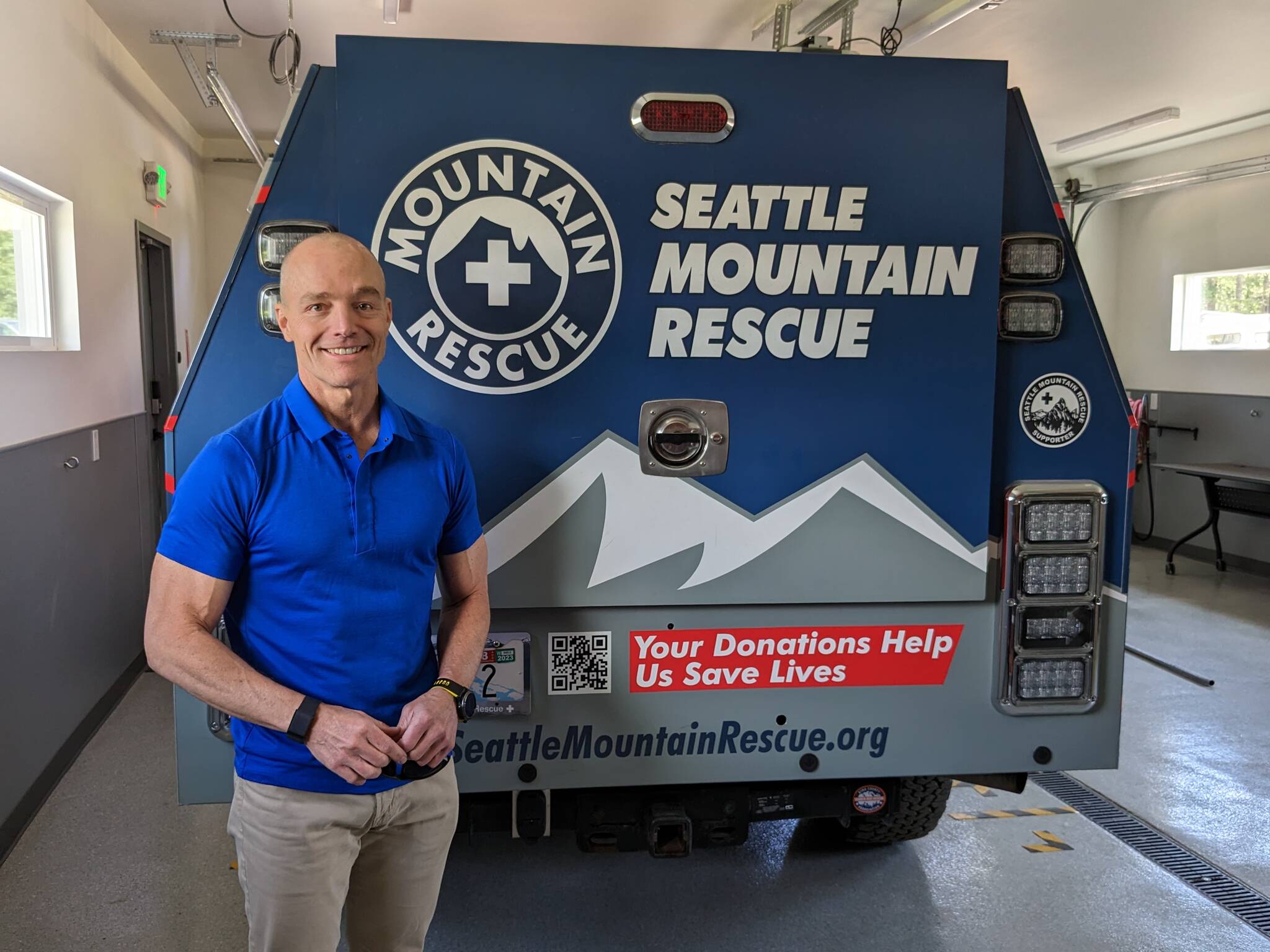On a Wednesday night, volunteers with Seattle Mountain Rescue were training at their new North Bend Mountain Rescue Center when a call came in. There was an injured climber near Snoqualmie Pass.
Almost immediately, the field team assembled their gear and hopped in their heavy duty truck. They reached the climber just before midnight.
It was a response SMR board president Doug McCall described as the “perfect scenario.” It’s the outcome the all-volunteer search and rescue team envisioned when purchasing a barely-standing, former machine shop in North Bend three years ago, hoping it would one day become its home base.
After years of restorations and a massive fundraising campaign, SMR unveiled its new Mountain Rescue Center — its first ever home — to the public last weekend, lauding the facility for improvements it will bring in community safety and education.
“This will provide us, more than ever, the ability to be able to respond quickly,” McCall said.
Located just south of the Little Si Trailhead, the facility is at an epicenter of activity. It’s within five miles of Mount Si, Rattlesnake Ledge, Mailbox Peak and Mount Teneriffe, the busiest trails for rescues in King County.
“North Bend is a natural location for the [Mountain Rescue Center], being that we are the premier outdoor recreation designation in the Puget Sound Region,” North Bend Mayor Rob McFarland said in a statement.
SMR is an entirely volunteer-run search and rescue nonprofit, operating under the King County Sheriff’s Office, that celebrates its 75th anniversary this month. They serve as the primary first responder for all-season search, rescue and recovery operations in mountainous and hazardous terrains in King County and other parts of the state.
McCall, chair of SMR’s board and a Snoqualmie resident, has been volunteering with the group since 2008, after years as a volunteer firefighter. He said people often have misconceptions about SMR’s work.
While they operate under the sheriff’s office and work alongside the fire department on some responses, he said, they are independent and receive little government compensation.
Of the over $850,000 required to renovate the Mountain Rescue Center, a majority came either directly from SMR or outside donors. About $220,000 of those funds came from a state grant.
Since its founding by a group of climbers in 1948, the group has been a grassroots effort. The roughly 70 field volunteers currently working at SMR supply all their own equipment, McCall said.
Until building its North Bend Rescue Center, the group had never had its own location. McCall said they had previously kept their trucks in several spots, including the city public works lot or U.S. Forest Service buildings in North Bend. Rescue gear, meanwhile, was kept in those trucks or at each volunteer’s home, he said.
McCall said SMR had been looking for a permanent location for as long as he could remember, when one of their members stumbled across a mold-filled, hole-covered former machine shop off East North Bend Way.
SMR purchased that building in 2020, and spent the next three years gutting it and then restoring it to serve as its new home base. Its completion comes as interest in outdoor recreation has increased significantly since the pandemic. Needs for SMR’s services has grown rapidly, the nonprofit’s organizers said.
The facility is intended to help bridge that gap, while also providing a consistent training area and a reliable way to store and organize equipment.
“Having a central location near where we respond to a bulk of needs makes sense,” said SMR Interim Development Director Annie Walters. “A great deal of missions are along the I-90 corridor, and North Bend provides ready access.”


